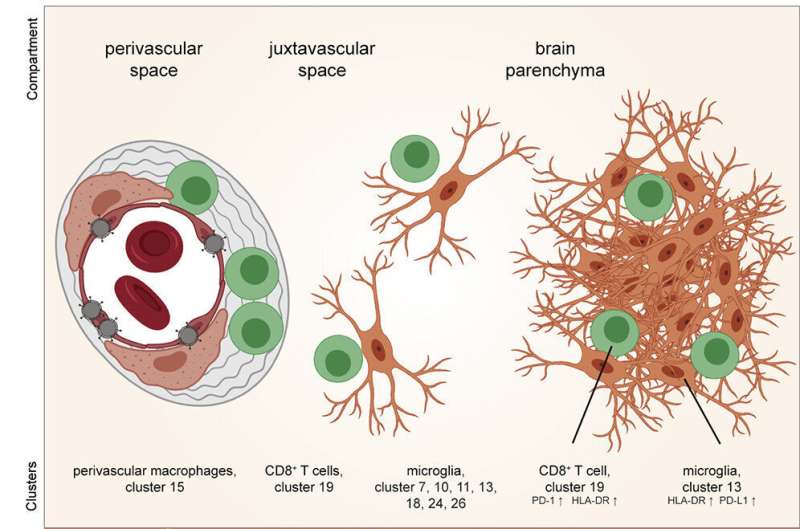
Both during and after infection with the Coronavirus SARS-CoV-2, patients may suffer from severe neurological symptoms, including anosmia, the loss of taste and smell typically associated with COVID-19. Along with direct damage caused by the virus, researchers suspect a role for excessive inflammatory responses in the disease. A team of researchers from the Freiburg University Medical Center and the Cluster of Excellence CIBSS has now shown that a severe inflammatory response can develop in the central nervous system of COVID-19 patients involving different immune cells around the vascular system and in the brain tissue. The team led by Professor Dr. Marco Prinz, Medical Director at the Institute of Neuropathology, and Professor Dr. Dr. Bertram Bengsch, Section Head of Translational Systems Immunology in Hepatogastroenterology at the Internal Medicine II just published their results in the current issue of Immunity.
“Even though there was already evidence of central nervous system involvement in COVID-19, the extent of inflammation in the brain surprised us,” says lead author Henrike Salié. “In particular the many microglial nodules we detected cannot usually be found in the healthy brain,” comments lead author Dr. Marius Schwabenland. Using a novel measurement method, imaging mass cytometry, they were able to determine different cell types as well as virus-infected cells and their spatial interaction in previously unseen detail.
Disruption of the brain’s immune response
“Until now, the inflammatory pattern in COVID-19 was poorly understood. Even compared to other inflammatory brain diseases, the inflammatory responses triggered by COVID-19 are unique and indicate a severe disturbance of the brain’s immune response. In particular, the essential defense cells of the brain, known as microglial cells, are particularly strongly activated, and we also observed migration of T-killer cells and development of a pronounced neuroinflammation in the brain stem,” says Prinz, who received the Leibniz Prize in 2020 for his research.
“The immune changes are particularly detectable near small brain vessels. In these areas, the viral receptor ACE2 is expressed, onto which the coronavirus can dock, and the virus was also directly detectable there,” Bengsch adds, “It seems plausible that the immune cells recognize infected cells there and that inflammation then spreads to the nerve tissue, causing symptoms It is possible that early immunomodulatory or immunosuppressive treatment could reduce inflammation.”
Immunological, virological, and neuropathological research
Source: Read Full Article